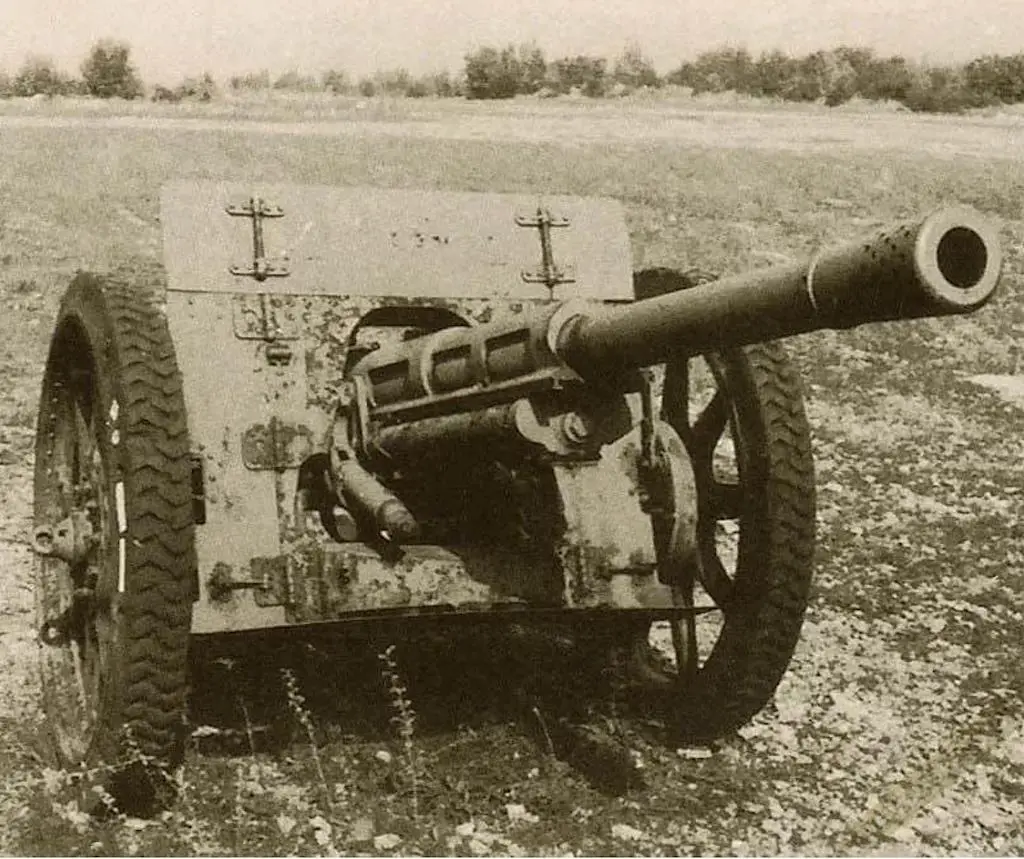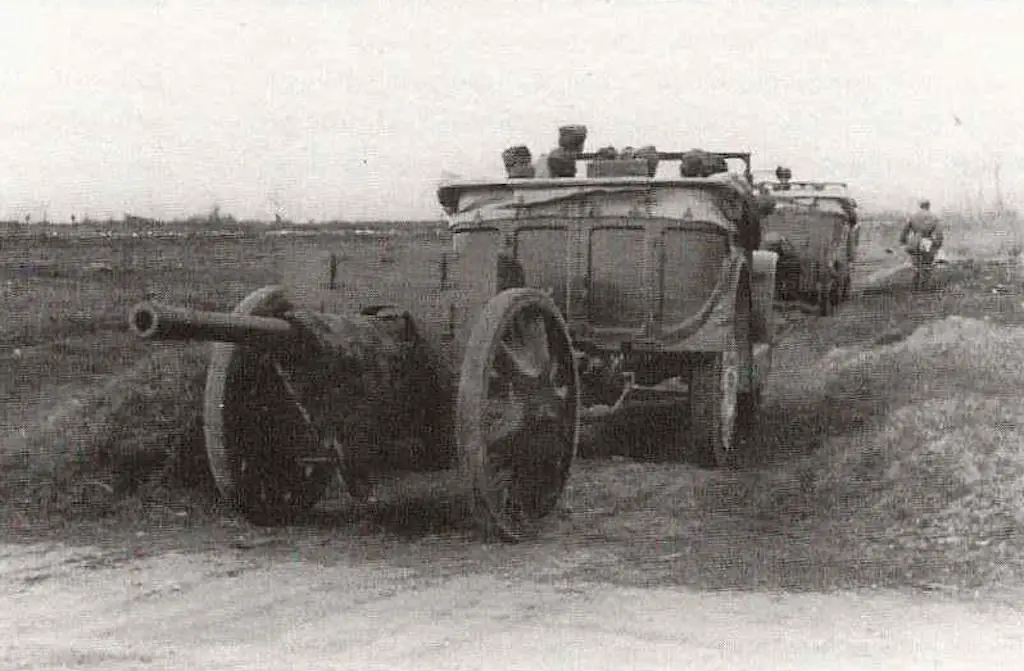A Rearmament Program Initiated
When Italy emerged from World War I, the economy, never particularly sound, was in no state to support a rearmament program. Thus its weapons comprised mainly of reparations received from Austria-Hungary. By the 1930s a large number of weapons at hand became considered obsolete to the more modern designs available. So Italy initiated a program of weapon design modernization. Field artillery guns became the first weapons considered for modernization. Thus the Cannone da 75/32 modello 37 became the first post-war artillery design introduced since 1918.

Cannone da 75/32.
About the Cannone da 75/32
Ansaldo designed the Cannone da 75/32 gun in 1937. It was a good, sound and modern design intended from the outset for powered traction. The long barrel was refitted for a muzzle brake. Additionally, the high muzzle velocity allowed the cannon to be occasionally employed as an anti-tank weapon.
With the split trail deployed the canon has a traverse of 50 degrees, which is no doubt useful in armored warfare. But this negated by the need of large trail spades hammered into the ground through the trial legs. Because of that, the rapid change of the traverse angle was not easy. Even with this slight disadvantage the modello 37 became a very useful field gun and the Italian gunners clamored for as many as they could get.
Production Numbers Too Low
Unfortunately, they clamored in vain as Italian industry failed to provide the numbers required. There was simply no industrial potential to spare in producing the guns. Additionally, all the raw materials, or at least the bulk of them, had to be imported. Thus gun production had to get underway at a time when all other arms of the Italian forces were in the process of rearming. The Regia Aeronautica received a far higher degree of priority over the artillery. Even the Italian Navy absorbed a large portion of the few available manufacturing and raw material resources.

A Cannone da 75/32 in tow.
Because of that, the demand for the modello 37 constantly exceeded supply. By 1943 most of the Italian artillery continued to comprise of weapons dating from World War I or earlier.
In 1943 Italy signed the armistice with the Allies. Germany had already noted the finer points of the modello 37 and as Italy withdrew from the Axis partnership, the Germans swiftly moved in to take over as much of the Italian armory as possible. In this grab, Germany changed the designation of the Cannone da 75/32 modello 37s to the 7.5mm FK 481(i). Germany used the canon in Italy and the fight against the Yugoslavian partisan forces. Germany continued to utilize the cannon until the end of World War Two.
Specifications
| Model | Cannone da 75/32 |
|---|---|
| Caliber | 2.95 inches (75 mm) |
| Barrel Length | 8.44 ft (2.574 m) |
| Traveling Weight | 2,755.78 lbs (1,250 kg) |
| Firing Weight | 2,641.14 lbs (1,198 kg) |
| Muzzle Velocity | 2,047 fps (624 mps) |
| Maximum Range | 13,560 yards (12,400 m) |
| Shell Weight | 14 lbs (6.35 kg) HE |
| Traverse | 50º |
| Elevation | -10º to +45º |